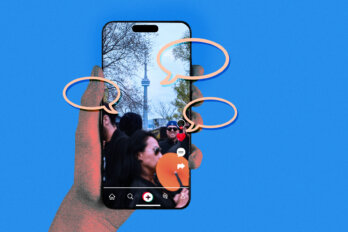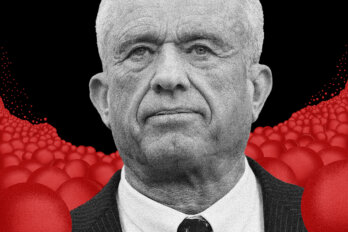Boredom is one of the most common human experiences, yet it seems continually to defy complete understanding. We all know what it is to feel bored, but what exactly prompts, constitutes, or follows from the condition of boredom is far less obvious. Is boredom a function of leisure? Does boredom tangle desire or personal conditions, or both? That is, when I stare at the full refrigerator and complain that there is nothing to eat, or when I scan 100 cable channels and find nothing to watch, who or what, exactly, is to blame?
A century ago, modernist poets and artists worked to illustrate the disintegrated selfhood of twentieth-century humanity, the way a coherent individuality was being torn apart by new social and political conditions such that we were left with, at best, fragments shored against our ruin. Today, the challenge is urgent in a new fashion, since our selves are deliberately scattered data fragments—Twitter feeds, Instagram posts, shopping preferences, and text trends captured by algorithms that seem to know us better than we know ourselves. What hope is there for integration and stability under such conditions?
All of us, at least in the richer parts of the planet where stimulus is rich, are aware of the problem. I am sitting in front of a screen. If it is the right time of day, there is a muted baseball game showing on the nearby TV. I have my phone on the desk, which relentlessly delivers voicemail messages about daily trivia from people I know. I answer some of them. A web-browser window is open in another tab, in case I want to fact-check something without troubling my failing memory, order a book I almost forgot on Amazon, or suddenly feel like wandering down a hot-link tunnel of scant and certainly forgettable relevance to what I still call my life. I can’t settle on any one thing, let alone walk away from the light cast by the screens and into a different reality. I am troubled, restless, overstimulated. I am consuming myself as a function of the attention I bestow. I am a zombie self, a spectre, suspended in a vast framework of technology and capital allegedly meant for my comfort and entertainment. And yet, and yet…I cannot find myself here.
Boredom, especially the species of it that I am going to label “neoliberal,” depends for its force on the workings of an attention economy in which we are mostly willing participants. In the form of pervasive distraction and proffered connection or communication, social media and other online mechanisms act to harvest our attention. Sites are rated for number of hits, or stickiness, while those from whom the attention is reaped congratulate themselves on likes, retweets, and high numbers of friends or followers. In all these acts, we do the attention economy’s work. But it is not the specific platform or medium that lies at the root of this eerie economy in which we are made to feed upon ourselves, turning desire and attention themselves into commodities we give away for free. Rather, it is the Interface: the complex and often invisible set of relations that conjoins individuality, longing, technology, and structural interests. Not all Interfaces are linked to screens but all are linked to selves and their desires. Our self-commodification within the attention economy makes us unwitting labourers for capital. It also makes us serial sufferers of boredom, too often addicted to means that falsely promise alleviation and bring only repetition. Here we sit, shadow selves, hollowed out from within by alienation from our own attention.
New economies create new workers, new commodities, and new injustices. The social costs of the attention economy have been documented: rise in menial jobs, like packaging Amazon products, which are then systematically phased out by automation, robotics, and drones; the dominance of short-term and service jobs that have no security and no infrastructure; the so far marginal but still significant costs of inactivity and the screen-dominated life. But the central costs are perhaps less obvious. Boredom is never just the property of imagination-poor teenagers or overimaginative philosophers. When we ourselves become the product we consume, the notion of work has decisively shifted. In the past, work was recognized for its colonizing power, expanding to fill and dominate time itself such that there might exist no clear line between work hours and nonwork hours. Our current condition is worse. The Interface, leveraging boredom, makes us all into unpaid workers for the advertisers who support those apparently cost-free platforms. We ought to recall that there is no such thing as a free transaction. In this species of transaction, you pay with your individuality, freedom, and happiness.
The psychoanalyst Adam Phillips begins one of his best essays, “Every adult remembers, among many things, the great ennui of childhood, and every child’s life is punctuated by spells of boredom: that state of suspended anticipation in which things are started and nothing begins, the mood of diffuse restlessness which contains that most absurd and paradoxical wish, the wish for a desire.” The wish for a desire is a nod to Tolstoy’s similarly doubled definition of boredom (“the desire for desires”). This twisted condition is not restricted to children, and though it may be judged absurd and paradoxical, it is nevertheless common and urgent. The stall of desire working against itself is the beginning, but not the end, of boredom. And thus boredom understood in terms of desire is a first clue to boredom’s special ability to initiate philosophical reflection. But there are further clues to decipher and a more complicated solution to confront concerning the mystery of consciousness.
Arthur Schopenhauer is the dean of boredom studies, the first philosopher in the Western tradition to take seriously a condition that he recognized would become increasingly common. In part this was so because the material conditions of life allowed it: for a significant segment of the emergent bourgeois population, for whom the necessities of life were reliably secured, the questions of what to desire and what to do were no longer answerable in a straightforward manner. The medieval philosophers and theologians had already dissected in some detail the particular vice of accidie, or melancholy torpor, which bears an affinity to boredom. But accidie is shaded as a failure of spirit that might preclude the execution of one’s duty, rather than an emotional and existential condition that is the wholly rational response to one’s social and cultural condition.
Erich Fromm could, in the mid-twentieth century, note that what separates humans from other creatures is not the upright posture, or tool wielding, or the ability to laugh, but rather precisely the fact that humankind is the only form of life blessed and cursed with the ability to query its own purpose. “Man is the only animal for whom his own existence is a problem which he has to solve and from which he cannot escape,” Fromm wrote in Man for Himself, confronting what he regarded as the “paralysis of our productive powers” that issues from the experience of boredom as an unavoidable part of that problem. Boredom was, Fromm thought, an experience of everyday damnation. “I am convinced that boredom is one of the greatest tortures,” he wrote. “If I were to imagine Hell, it would be the place where you were continually bored.”
All of this is prefigured in Schopenhauer’s groundbreaking analysis, which anticipates by more than a century the sort of dissection of comfortable industrialized social existence that Fromm represents. Human life, says Schopenhauer in The World as Will and Representation, “Swings like a pendulum to and fro between pain and boredom, and these two are in fact its ultimate constituents.” Boredom is “anything but an evil to be thought of lightly: ultimately it depicts the countenance of real despair.” On one reading, a bored person is experiencing a species of psychic conflict, a stall. Seeking relief from pain, the organism moves toward stimulus. But since there is no particular desire to approve or make active as against any other, the self falls into a hopeless struggle with itself that cannot resolve, because there is no evident raw material on which to apply the energy of resolution. Boredom is, at its simplest, a form of desire turned back upon itself, resulting in the inability to act in any purposeful or happy manner. The hellishness of boredom, the real despair sketched on its countenance, is in large measure a function of the banality of the condition. Why can’t I simply want something? Why can’t I simply do something?
We are likely all too familiar with the experience: confronting the shelf of books where there is nothing to read, the enforced stillness of the long car journey with nothing to divert us from the unbroken vista out the window, the time spent waiting in queues, doctor’s offices, or departure lounges, the long evenings that stretch out after one’s lonely dinner without promise of incident or hint of pleasure. Boredom often, if not always, is experienced as a kind of temporal abyss, an acute awareness of time’s passing; it is the existential variant of simple duration, deepening that mundane experience into an apparently endless waiting for nothing that suffuses and dominates consciousness. In some ways, boredom acquires the character of an addiction, especially when it is actively cultivated by social conditions that can extract a profit from sustained bouts of boredom and stimulation. There is a danger that such an experience of boredom lowers the subject’s resistance even as it raises the existential stakes. In contrast to the moments of quiet desperation described by classical authors, we might consider that the addict has it easy: even if they are powerless to solve it, at least they know what their problem is!
Not all boredoms are created equal. According to a colleague of mine—I have not been able to confirm it independently—there was once to be seen in the Berlin U-Bahn system a poster depicting a young man with a dull expression on his face, the very image of a mind gone blank. The poster bore the legend, possibly ironic, “Die Langeweile ist der Ursprung des Philosophierens” (Boredom is the wellspring of philosophizing).
Langeweile has, of course, a long-standing tradition in German of indicating a state of boredom with particular significance, that is not merely being enervated by a specific experience or person but descending into a state we might legitimately call existential. The question remains, though, whether this state of being is properly associated with the origin of philosophical reflection. An alternative account of “origin” here would posit deep boredom as a necessary condition for reflection not just on the twinned burden and gift of consciousness but also on the associated question of the meaning of life. Are we, when profoundly bored, especially susceptible to the large “philosophical” questions of mindedness, life, and death? Could the newfound attention economy be preventing us from reaching this level of complete and utter boredom?
If one is to make such a claim, one must not merely defend boredom’s status as a philosophy-inducing experience but likewise compare it with other candidates for the origin-of-philosophy status. Traditionally, these have included wonder and more direct confrontation with the prospect of death (as in Cicero’s Socratically inflected claim that “to philosophize is to learn how to die”). Can boredom vie with these canonical, and apparently more respectable, accounts of the origin of the philosophical attitude? If so, what kind of boredom is in play? Is it distinct from what we might call “routine” or nonphilosophical boredom? If so, how? Further, can the philosophy-inducing species of boredom be sought out actively or does it visit us adventitiously? Are there specific mechanisms of reflection that leverage boredom into more active and explicit forms of philosophical thought?
But wait. What if the boredom that induces philosophical reflection is in fact coiled within, or inextricable from, the more familiar forms of philosophical prompting? Plato has Socrates relate the hoary tale of Thales of Miletus, astronomer and natural philosopher of vast gifts, who fell down a well as he walked along gazing at the wonders of the heavens. Was he moved to look up because of the dullness of mundane life around him? Thales found much to fascinate him in the ordinary world, but he was overwhelmingly fetched by the distant mysteries of the stars and the familiar feeling—an early antecedent to Kant’s notion of the sublime—of our own insignificance in the universe around us. That feeling of sudden diminution of one’s importance is not boredom as such but nevertheless feels close to it in the way that procrastination and addiction are likewise cognate psychological states. Meaning drains from the scene, blotted out by the vastness of the real. We shrink to a tiny point, and routine thought—not to mention routine care about where I am walking—is obliterated. Wonder is usually considered uplifting, while boredom is thought enervating, but perhaps there is a closer affinity here than we usually imagine.
Adapted from Wish I Were Here: Boredom and the Interface by Mark Kingwell (McGill-Queen’s University Press, 2019).




